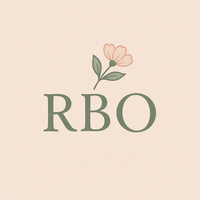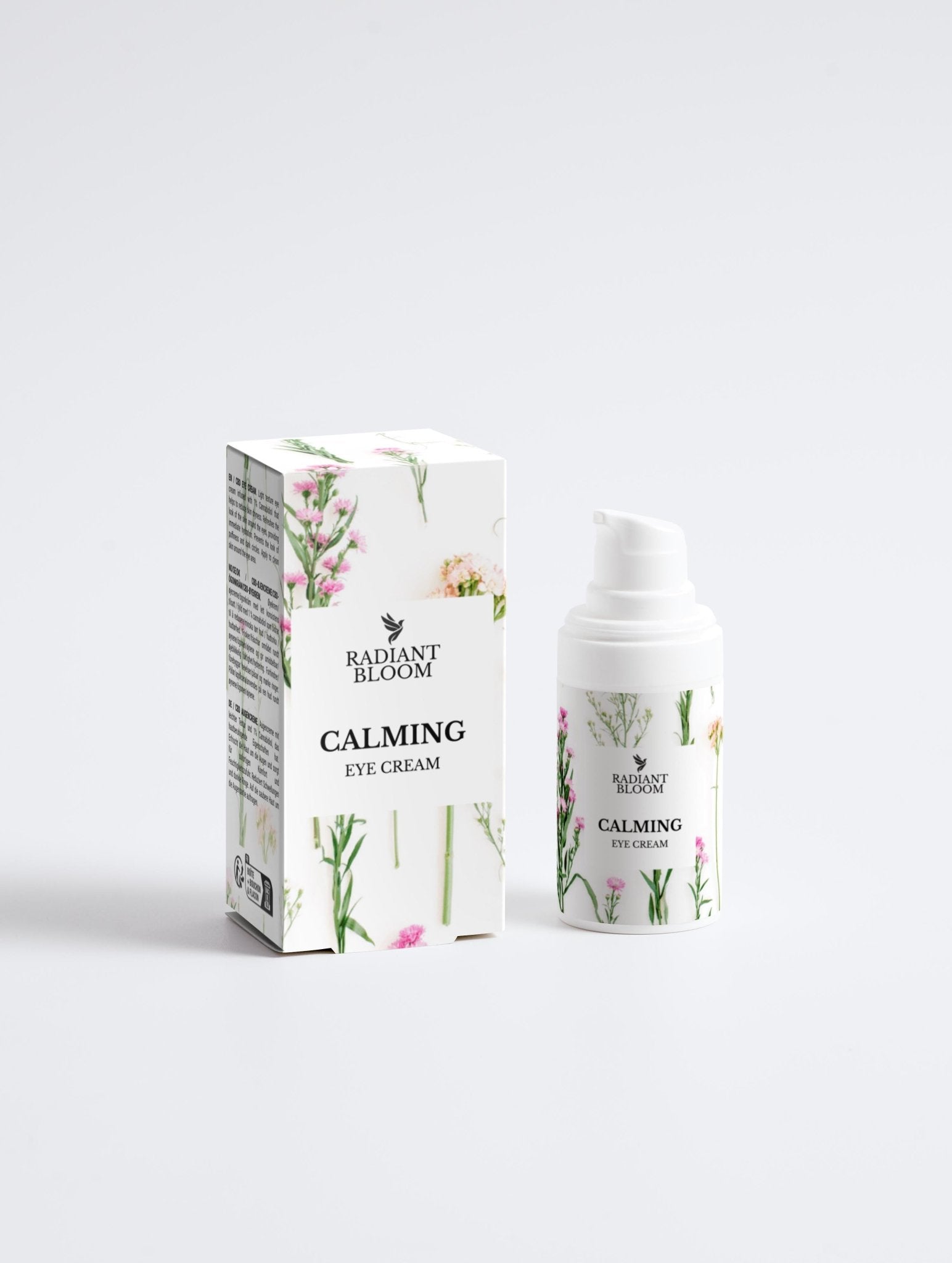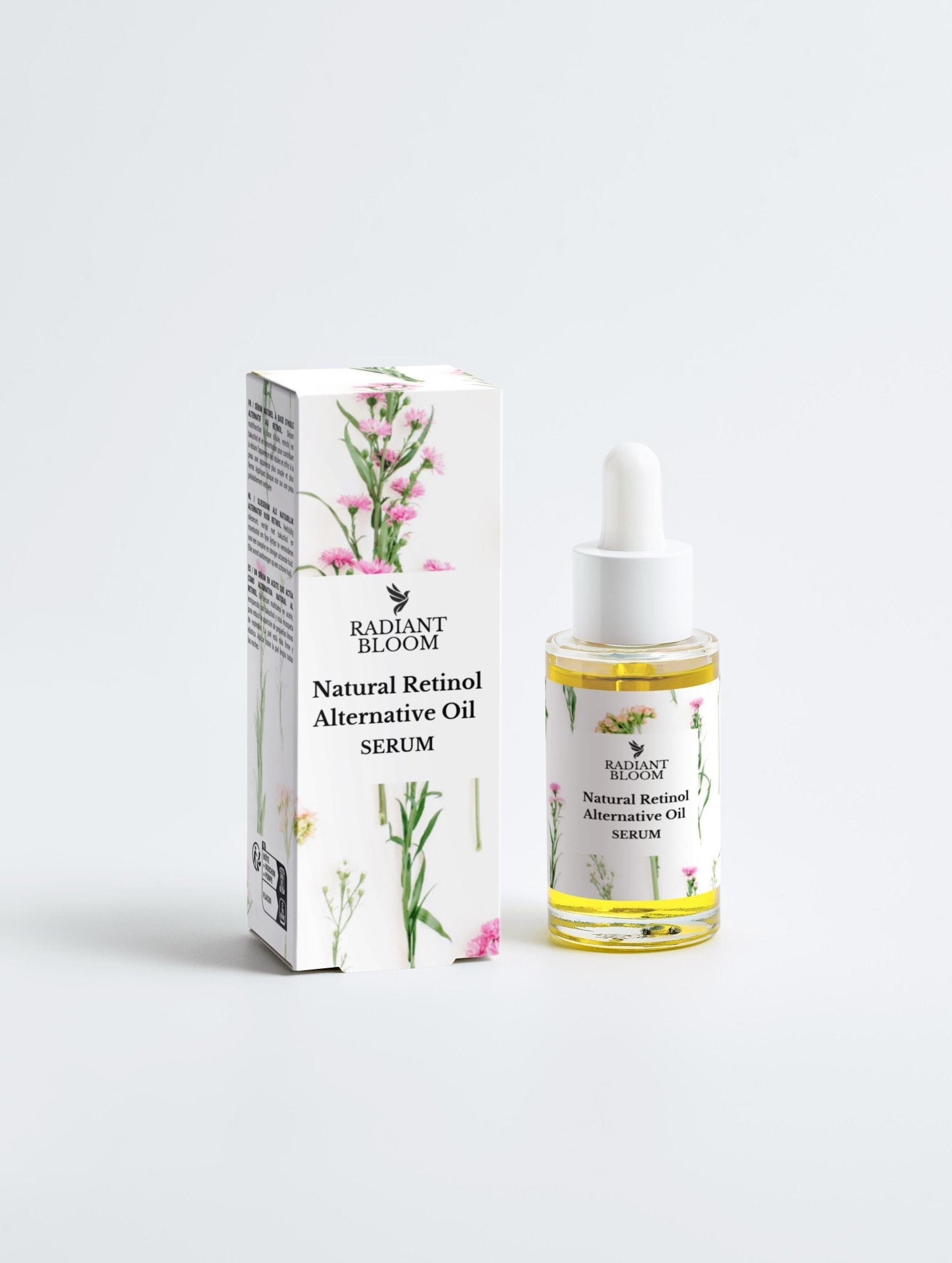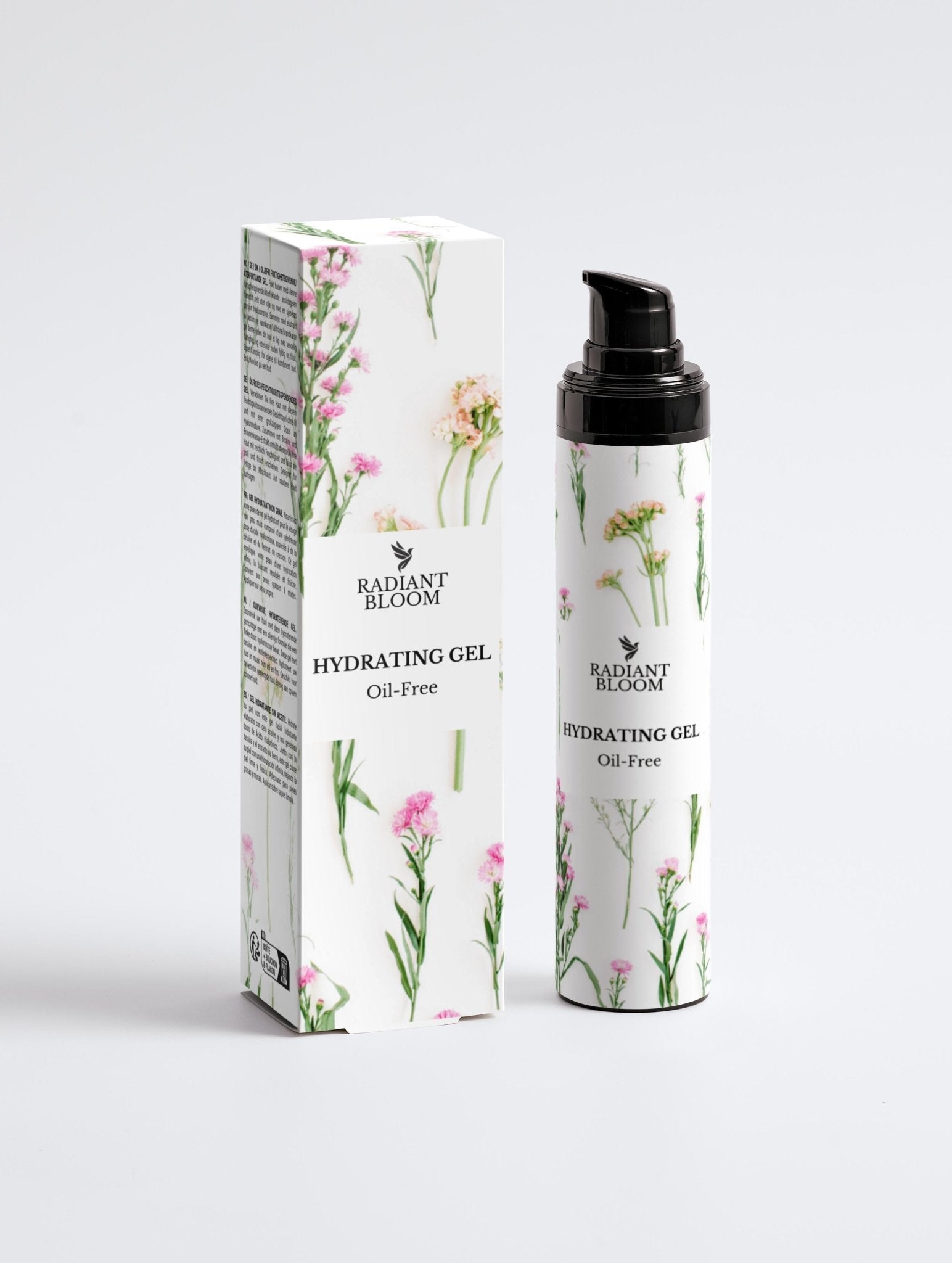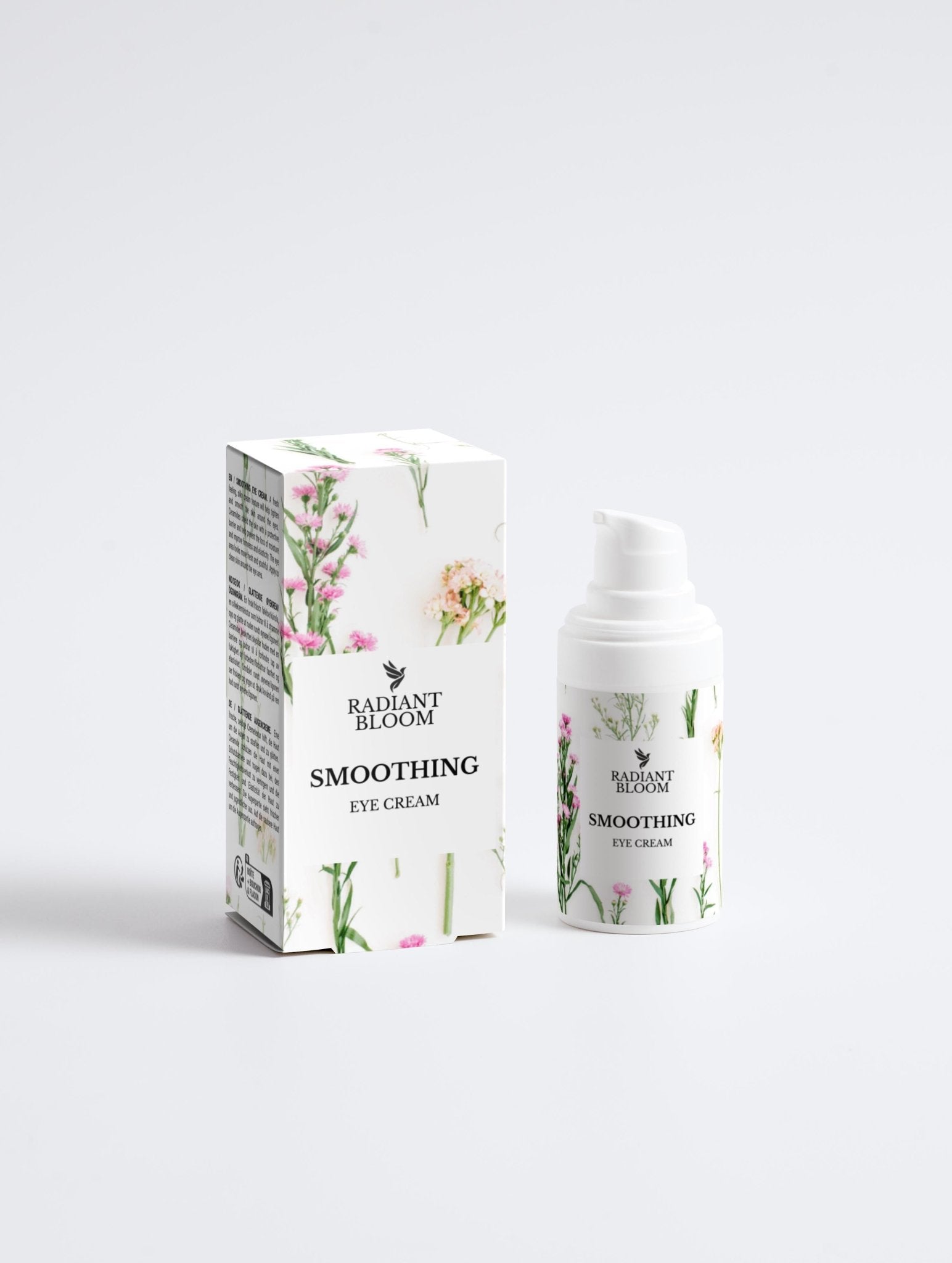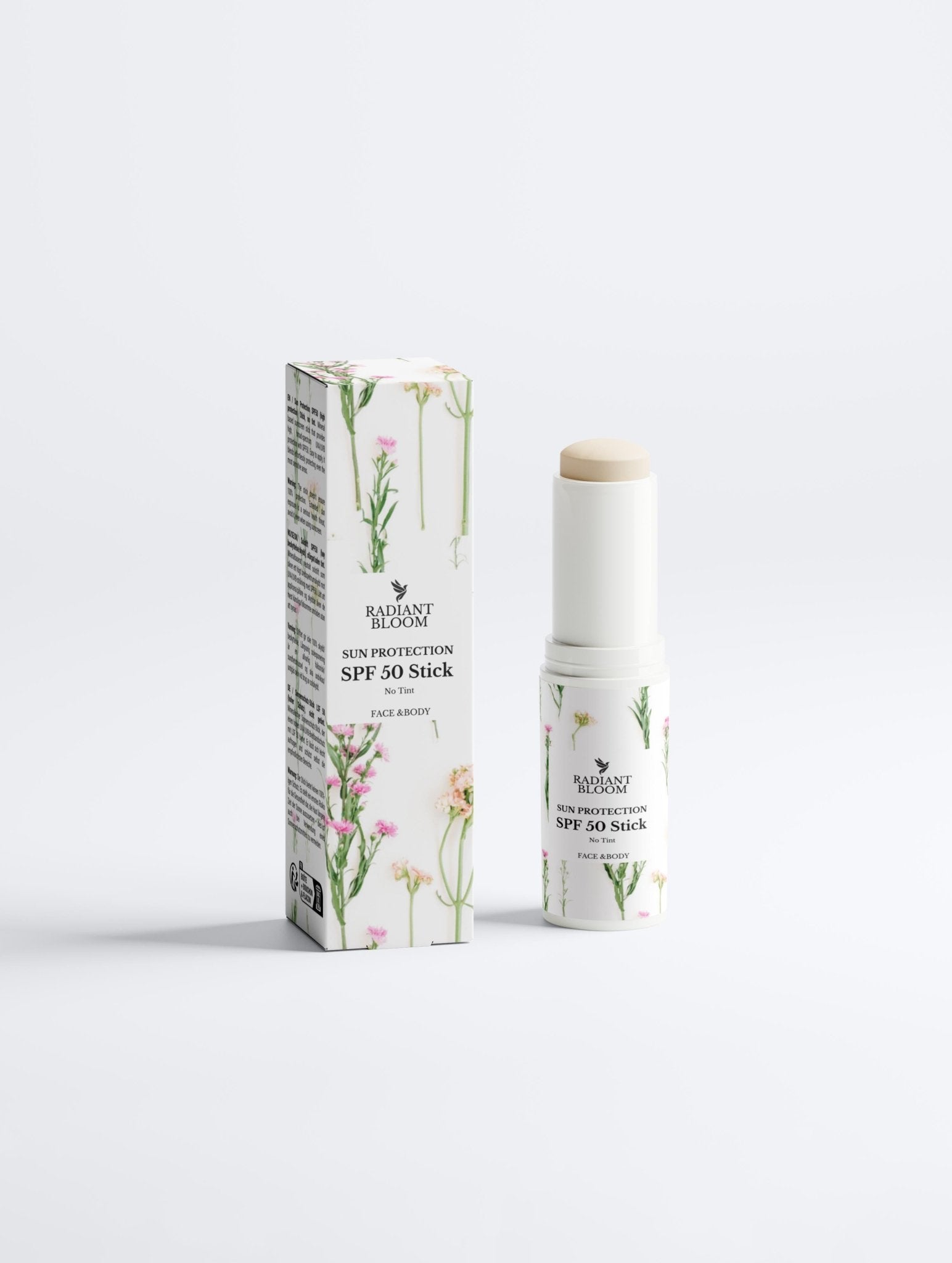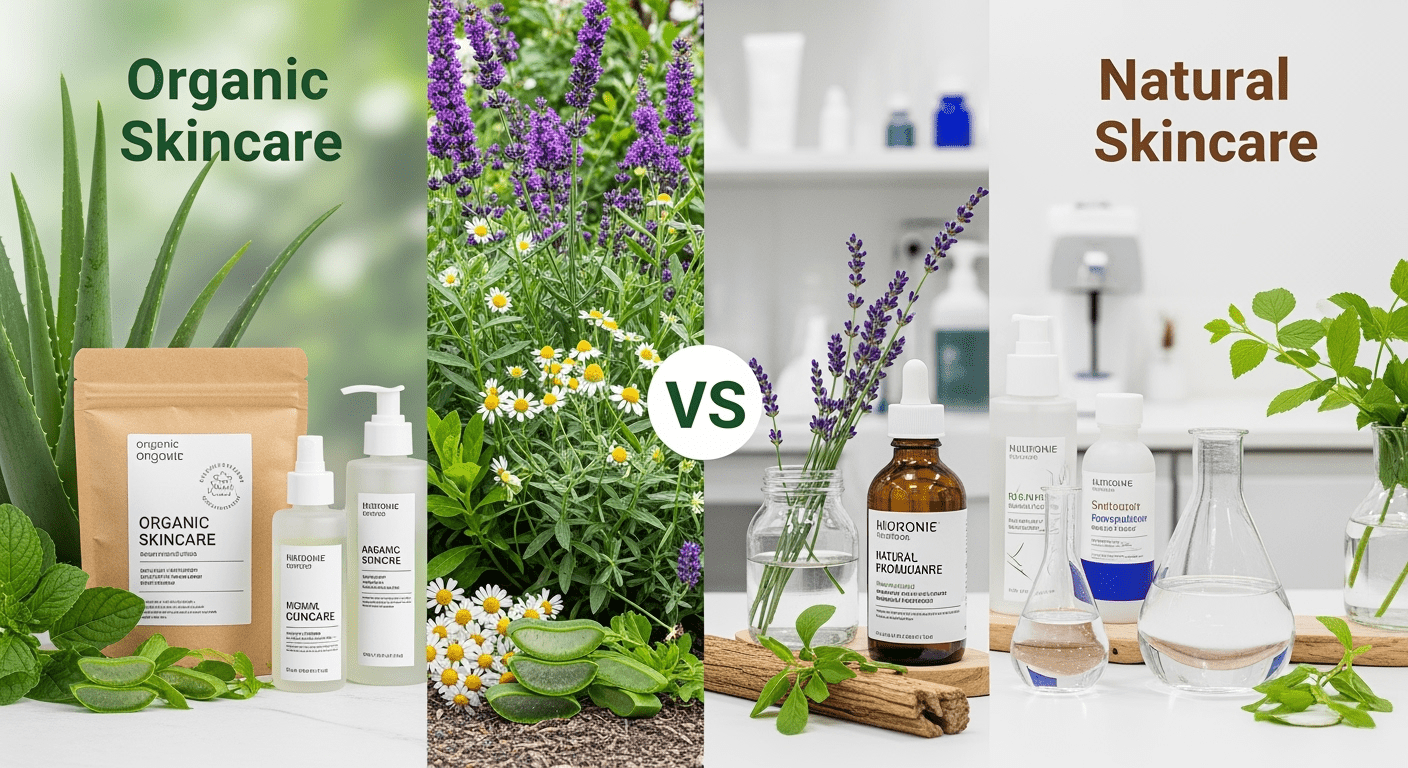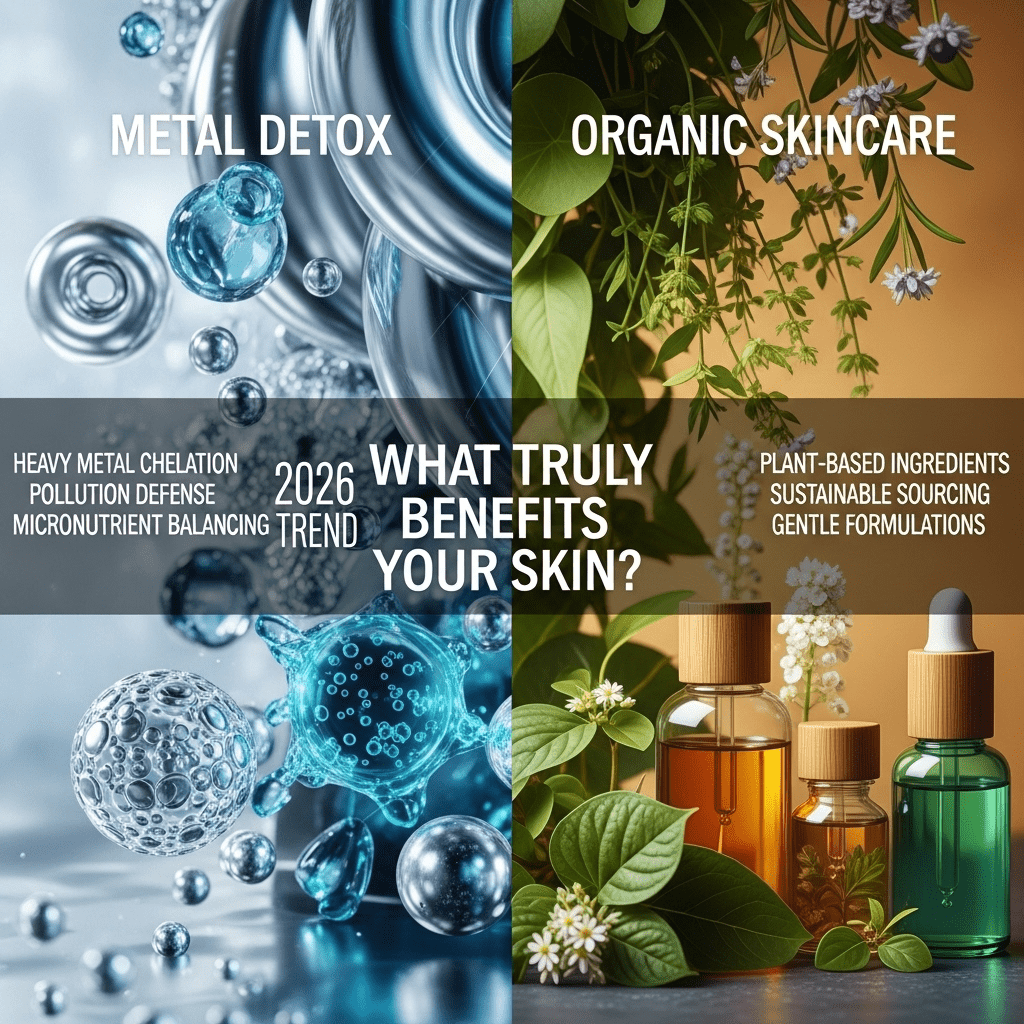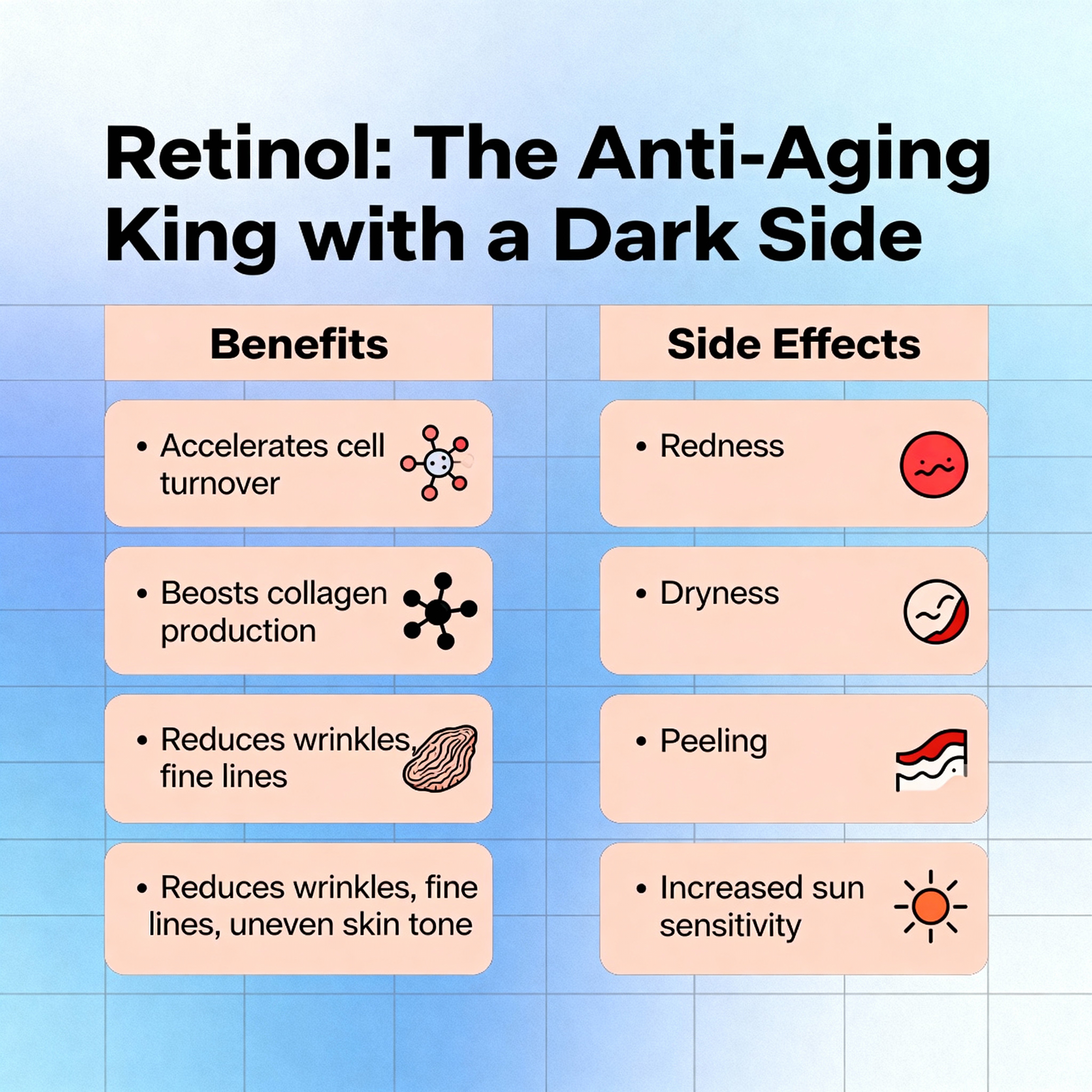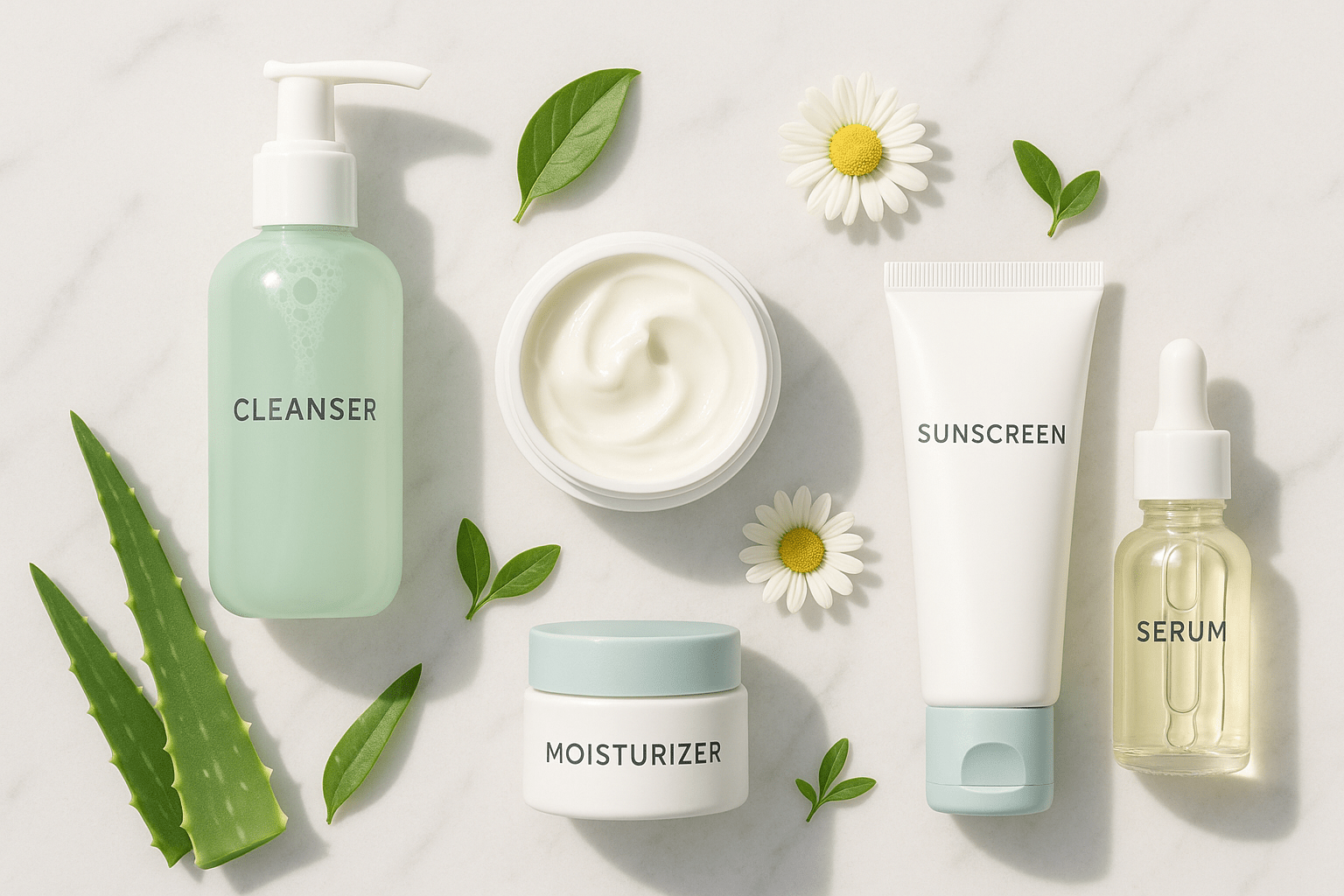Are you confused by skincare labels claiming to be "natural," "organic," or "clean"? You're not alone. With the global organic skincare market expected to reach $20.55 billion by 2029, brands are using these buzzwords more than ever – but many don't mean what you think they do.

The $20 Billion Question: What's Really in Your Skincare?
Walk down any beauty aisle, and you'll see products screaming "natural" and "organic" at every turn. But here's the shocking truth: up to 95% of products labeled "natural" contain synthetic ingredients, and many "organic" products barely meet minimum standards.
So what's the real difference, and why should you care? Let's break down the marketing myths and discover what actually makes skincare truly beneficial for your skin.

Natural Skincare: The Wild West of Beauty
What "Natural" Really Means
The term "natural" in skincare is largely unregulated. This means brands can slap "natural" on their products even if they contain:
- Synthetic preservatives
- Artificial fragrances
- Chemical emulsifiers
- Lab-created actives
The Reality Check: A product can be 99% synthetic chemicals and still legally claim to be "natural" if it contains just 1% plant-derived ingredients.
Common "Natural" Ingredients That Aren't
- Sodium Lauryl Sulfate (SLS) - Derived from coconut oil but heavily processed
- Propylene Glycol - Can be plant-derived but chemically identical to synthetic versions
- "Natural" Fragrances - Often contain synthetic compounds

Organic Skincare: The Gold Standard (When Done Right)
What Makes Skincare Truly Organic
Organic skincare must meet strict certification standards:
ECOCERT COSMOS Organic Requirements:
- Minimum 95% organic ingredients
- No synthetic preservatives, fragrances, or colors
- Environmentally sustainable sourcing
- Regular third-party auditing
- Biodegradable formulations
USDA Organic Standards:
- 95% or more organic ingredients
- No GMOs, synthetic pesticides, or herbicides
- Strict processing guidelines
- Annual inspections

Why Organic Certification Matters
Certified organic products undergo rigorous testing that ensures:
- Ingredient Purity - No harmful chemicals or pesticides
- Environmental Safety - Sustainable farming and manufacturing
- Skin Compatibility - Gentle, non-irritating formulations
- Transparency - Complete ingredient disclosure
The Science: Why Your Skin Prefers Organic
Skin Barrier Protection
Research shows that organic ingredients are more compatible with your skin's natural pH and microbiome. Synthetic chemicals can disrupt your skin barrier, leading to:
- Increased sensitivity
- Premature aging
- Disrupted moisture balance
- Compromised natural protection

Bioavailability Advantage
Organic plant-based ingredients are recognized by your skin cells more easily than synthetic alternatives, leading to:
- Better absorption
- More effective results
- Fewer allergic reactions
- Long-term skin health benefits
Real-World Example: SPF Protection Done Right
Let's examine two sunscreen products to see the difference:
"Natural" Sunscreen Stick
Typical Ingredients:
- Octinoxate (synthetic UV filter)
- Oxybenzone (hormone disruptor)
- Synthetic fragrances
- Petroleum-based waxes
- One or two plant oils (hence "natural" claim)
Certified Organic Sunscreen Stick
Radiant Bloom Organic SPF 50 Stick Ingredients:
- Zinc Oxide (mineral, reef-safe)
- Organic Coconut Oil
- Organic Shea Butter
- Organic Jojoba Oil
- Natural Vitamin E
- ECOCERT COSMOS certified
Available in both tinted and non-tinted formulations for all skin tones.

The Difference: The organic version provides broad-spectrum protection without hormone-disrupting chemicals, while nourishing your skin with certified organic botanicals.
How to Spot Truly Organic Skincare
Look for These Certifications
✅ ECOCERT COSMOS Organic
✅ USDA Organic
✅ Soil Association Organic
✅ NATRUE Organic
Red Flags to Avoid
❌ Products claiming "organic" without certification ❌ Ingredient lists starting with water and synthetic compounds ❌ "Organic" products with artificial fragrances ❌ Brands that won't disclose full ingredient lists
Reading Labels Like a Pro
Top 5 ingredients matter most - they make up 60-80% of the product. If these aren't organic, the product isn't truly organic.
Organic ingredients are typically listed as:
- Aloe Barbadensis (Aloe) Leaf Juice*
- Cocos Nucifera (Coconut) Oil*
- Butyrospermum Parkii (Shea) Butter*
*From organic farming
The Environmental Impact: Beyond Your Skin
Conventional Skincare's Hidden Cost
- Microplastics in waterways from synthetic ingredients
- Chemical runoff harming marine ecosystems
- Non-biodegradable packaging contributing to waste
- Pesticide use in non-organic ingredient sourcing
Organic Skincare's Benefits
- Reef-safe formulations that don't harm coral reefs
- Biodegradable ingredients that break down naturally
- Sustainable farming practices that protect soil and water
- Eco-friendly packaging options

Price vs. Value: The Long-Term Investment
Why Organic Costs More Initially
- Premium organic ingredients
- Strict certification processes
- Sustainable sourcing methods
- Higher quality control standards
The Hidden Costs of "Cheap" Skincare
- Skin damage requiring expensive treatments
- Allergic reactions and medical visits
- Environmental cleanup costs
- Frequent product replacement due to ineffectiveness
Building Your Organic Skincare Routine
Essential Steps
- Cleanser - Look for gentle, sulfate-free organic cleansers like Radiant Bloom's Colour Care Shampoo which doubles as a gentle face wash
- Moisturizer - Choose products with organic oils and botanicals from certified organic skincare lines
- Sun Protection - Mineral, reef-safe SPF 30+ like Radiant Bloom's SPF 50 Stick
- Treatment - Organic serums for specific concerns from trusted organic brands
Transition Tips
- Start slow - Replace one product at a time
- Patch test - Even organic products can cause sensitivity
- Be patient - Organic ingredients work gently over time
- Read everything - Don't trust marketing claims alone

Case Study: How One Brand Gets Organic Right
Radiant Bloom Organic exemplifies what truly organic skincare should look like:
✅ Full ECOCERT COSMOS Certification - Not just individual ingredients, but entire product lines
✅ Complete Transparency - Every ingredient listed with organic percentages
✅ Sustainable Packaging - Eco-friendly materials and minimal waste
✅ Multi-Purpose Products - Like their SPF 50 Stick that works for face and body
✅ No Greenwashing - What you see is what you get, backed by third-party certifications
This is the standard all organic skincare brands should meet, but unfortunately, very few actually do.

The Future of Clean Beauty
- Fermented organic ingredients for better bioavailability
- Blue biotechnology using sustainably sourced marine ingredients
- Microbiome-friendly formulations supporting skin health
- Zero-waste packaging reducing environmental impact
What to Watch For
The organic skincare industry continues evolving with stricter standards and innovative ingredients that prove you don't need to compromise between effectiveness and safety.
Making the Switch: Your Next Steps
Questions to Ask Before Buying
- Is this product certified organic by a recognized body?
- What percentage of ingredients are actually organic?
- Are the top 5 ingredients organic?
- Does the brand provide complete transparency?
- Is the packaging environmentally responsible?
Recommended Transition Timeline
- Week 1-2: Switch to organic cleanser (gentle color-safe options available)
- Week 3-4: Add organic moisturizer from certified brands
- Week 5-6: Incorporate organic sun protection
- Week 7-8: Add organic treatments/serums from reputable sources
Conclusion: Your Skin Deserves the Truth
The difference between natural and organic skincare isn't just marketing fluff – it's about the health of your skin, your body, and our planet. While "natural" products may contain some beneficial ingredients, only certified organic skincare guarantees the purity, safety, and effectiveness your skin deserves.
Remember: Your skin absorbs up to 60% of what you put on it. Make every ingredient count.
Take Action Today
Ready to make the switch to truly organic skincare? Start with the basics: a gentle organic cleanser, nourishing moisturizer, and reliable sun protection. Explore certified organic options at Radiant Bloom Organic – where every product meets strict ECOCERT COSMOS standards. Your skin – and the environment – will thank you.
About the Author: This guide was created to help consumers navigate the confusing world of skincare claims and make informed decisions about the products they use daily. For certified organic skincare options that meet the highest standards discussed in this article, visit Radiant Bloom Organic – a trusted source for ECOCERT COSMOS certified products that prioritize transparency, sustainability, and skin health.
Sources:
- Organic Trade Association Skincare Market Reports
- ECOCERT COSMOS Certification Standards
- Environmental Working Group Skincare Database
- Dermatological Research on Organic vs Synthetic Ingredients
